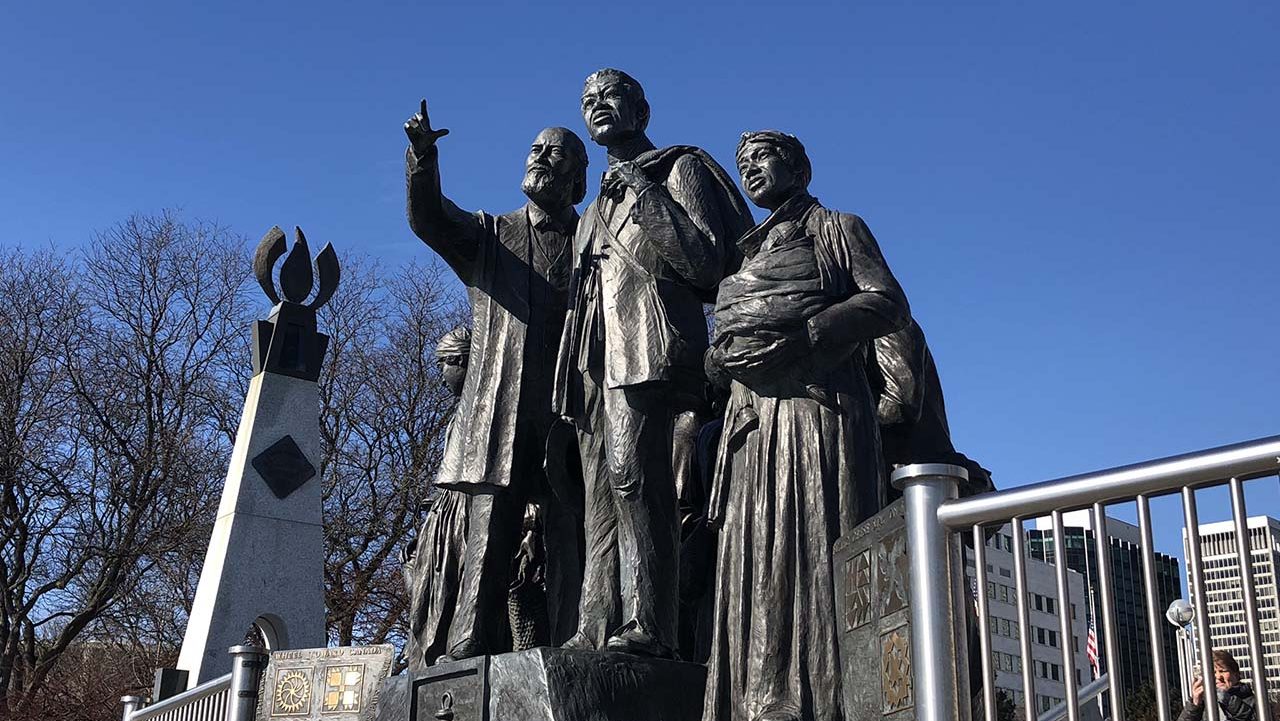Detroit Today: Forgotten tales of the Underground Railroad
The Underground Railroad has a rich history in Detroit, earning itself the nickname the “Gateway to Freedom.”

“The Gateway to Freedom,” an international monument to the Underground Railroad by artist Ed Dwight, sits along the bank of the Detroit River in Detroit.
The City of Detroit, with its close proximity to Canada — where slavery was abolished in 1833 — played a pivotal role in freedom seekers’ fight to abolish American slavery during the early to mid-19th century.
So it’s no surprise that the Underground Railroad, with its network of safe houses and clandestine routes established by enslaved African Americans and abolitionist supporters throughout the country, has a rich history in Detroit, earning itself the nickname the “Gateway to Freedom.”
This morning on Detroit Today, host Stephen Henderson spoke with journalist and author Scott Shane, whose new book tells the story of Thomas Smallwood, a former slave and little known hero of the Underground Railroad; and with Roy Finkenbine, the director of the Black Abolitionist Archive and a professor of history at the University of Detroit Mercy, about Detroit’s critical role in the abolitionist movement.
Subscribe to Detroit Today on Apple Podcasts, Spotify, Google Podcasts, NPR.org or wherever you get your podcasts.
Guests:
Scott Shane is a journalist and author of the new book “Flee North: A Forgotten Hero and the Fight for Freedom in Slavery’s Borderland,” which tells the story of Thomas Smallwood, a former slave who purchased his own freedom. As a free man, he led hundreds of enslaved people out of bondage, all while publishing accounts of these stories in an abolitionist newspaper.
“This completely self-educated man, who has never attended a day of school in his life, is writing these incredible satirical dispatches every week or two…in which he says something about the escapes,” Shane said. “He portrays the slaveholders as a sort of dimwitted, befuddled race of pampered fools, who can’t really take care of themselves without others feeding them and clothing them. And he portrays the enslaved as witty, clever, and able to basically outwit the entire slave power, as they called it, to get away to the north.”
Roy Finkenbine is the director of the Black Abolitionist Archive and a professor of history at the University of Detroit Mercy. He says Detroit’s proximity and access to Canada, combined with a growing, activist Black community, made the city vital to the Underground Railroad.
“Detroit was the gateway to freedom,” Finkenbine said.
Listen to Detroit Today with host Stephen Henderson weekdays from 9-10 a.m. ET on 101.9 WDET and streaming on-demand.
Trusted, accurate, up-to-date.
WDET strives to make our journalism accessible to everyone. As a public media institution, we maintain our journalistic integrity through independent support from readers like you. If you value WDET as your source of news, music and conversation, please make a gift today.

